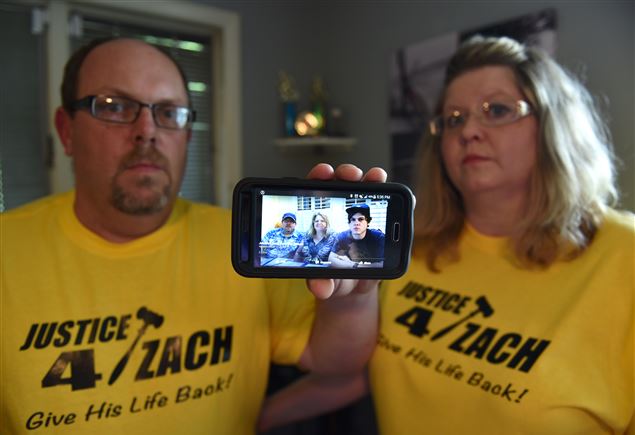19-year-old Zachery Anderson has been sentenced to jail and a 25-year record on the sex offender registry in a state where the minimum age of legal consent is 16. Anderson’s internet date, who he met on the app Hot or Not, claimed to be 17. It was not weeks after the two teens hooked up he learned her real age — 14.
The Indiana resident was sentenced to 90 days jail time in Michigan, the state where the crime was committed, addition to Michigan’s sex offender registry for 25 years, and will likely be added to the Indiana sex offender registry for life, which will require that he never live near schools, parks or other public places, and will allow police searches of his home every 90 days. Anderson’s probation also prohibits his using the internet, which he requires to study computer science, for five years.
After approving each other’s pictures on the popular app Hot or Not, the two teens communicated through messaging before meeting in person. On the app, the girl had not identified herself as age 13-17 — which age range is kept separate from users over 18 — but had identified herself as over 18, and while communicating through text messaging the girl told Anderson she was actually 17.
The two met when Anderson drove to Niles, Michigan, and they had sex that night.
Weeks later, Anderson learned from the girl that he was going to be in trouble and that she was actually 14. They did not communicate after the Skype call in which this information was conferred.
The girl’s parents had contacted the police to find out about her whereabouts, which led to the arrest of Anderson, who pled guilty to the charge of fourth-degree criminal sexual conduct.
During the trial, the girl and her mother both asked that the case be dropped, and asked for leniency.
“What do I say? I feel that nothing should happen to Zach,” said the girl at a hearing. “I, I mean I, I don’t know. I just … if you feel like something should, I feel like the lowest thing possible.”
The girl’s mother added, “I don’t want him to be a sex offender because he really is not and I know that there’s an age difference and I realize that [the girl] was inappropriate that night, we didn’t know. I’m very sorry and I hope you’ll really consider the fact of just dropping the case. I can’t say anything more than that. I hope you really will for all of our families.”
The judge opted not to offer leniency under the state’s Holmes Youthful Training Act, but proceeded with sentencing on the grounds of what the judge said was an inappropriate way for people to meet:
“You went online, to use a fisherman’s expression, trolling for women, to meet and have sex with,” said judge Dennis M. Wiley of Berrien County District Court. “That seems to be part of our culture now. Meet, hook up, have sex, sayonara. Totally inappropriate behavior. There is no excuse for this whatsoever.”
Critics of the ruling, however, who are also also calling for reforms in sex offender legislation, have argued that there was no evidence of “trolling for women, to meet and have sex with” on the part of Anderson, and have also objected to Wiley’s characterization of American culture.
By Cheryl Bretton
